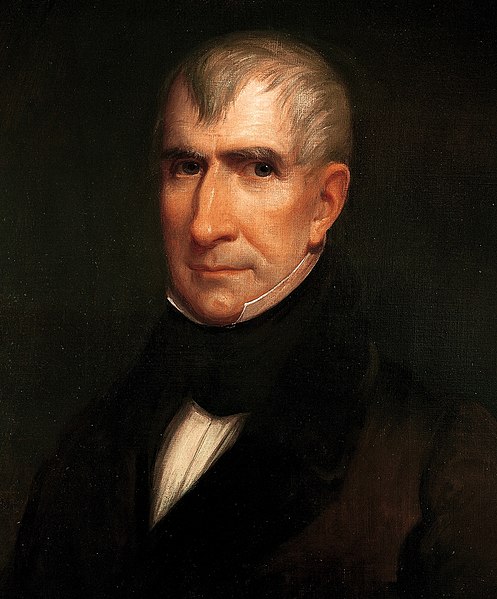On this day one-hundred and eighty-one years ago, in 1841, William Henry Harrison, the 9th President of the United States, died. This is almost singularly what he is known for, as death came to him exactly one month after his inauguration. Serving for only thirty-one days, he is by far the shortest-serving president in the history of the United States.
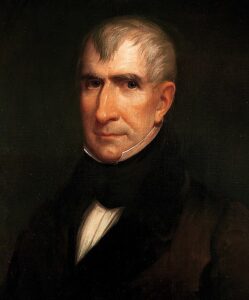
When inaugurated in 1841, Harrison was 68 years old, making him the oldest man elected president at the time. The first eight tended to be elected in their mid-fifties, and served into their mid-sixties at best. Only Andrew Jackson surpassed Harrison, who had retired from his second term in office in 1837 at the age of 69. As the story goes, Harrison himself was aware of rumors casting doubt on his ability to lead at his age, and so sought to dispel them on the day of his inauguration by delivering a nearly two-hour speech on a wet, cold day. There he allegedly contracted pneumonia, which would kill him within the month, ultimately confirming all doubts. In more recent days, however, historians and medical experts alike have challenged this old, pithy story and instead postulate that Harrison was likely killed by septic shock brought on by the White House’s horribly contaminated water.
The fact remains, however, that Harrison’s presidency died a stillbirth, marked by no significant achievements or challenges. While in the present day we may have grown used to an immediate flurry of activity modeled after Franklin Roosevelt’s mythical first hundred days, such a political environment remained nearly a century away. Harrison was likely no lost presidential innovator, either. He ran a campaign strongly critical of Andrew Jackson’s perceived overreach, after all, and promised to cede legislative initiative to Congress. Instead, his presidency serves as a mere historical prelude to the ascent of his Vice-President, John Tyler. With Harrison’s death, Tyler became the first Vice-President to ascend to the presidency, launching a scrappy bid for power which clarified the murky rules of succession. Perhaps the only notable political minutiae of Harrison’s month in office was his brief power struggle with Whig godfather Henry Clay, who sought to play puppet-master to Harrison’s cabinet and presidency. This intrigue, however, barely ranks among the cloak-and-dagger politics of presidencies in Harrison’s past and future.
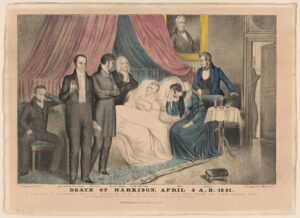
It’s an amusing fate for the only president to have attended medical school to have become a medical mystery for the ages. In his death, too, he serendipitously upheld the Hippocratic Oath: unlike many of the supremely underwhelming presidents of his era, he died before he had the chance to do harm. For simple lack of time, Harrison’s presidency was a blank slate.
And yet, most rankings of U.S. presidents still include Harrison among their number, including C-SPAN’s quadrennial, multifaceted survey of historians. As of 2021, C-SPAN ranked Harrison as the fifth worst president– just below Tyler, his own vice-president. This is the lowest Harrison has ranked since C-SPAN began conducting their survey in 2000, as he steadily drops by a position or two every four years.
Frankly, it is non-sensical to attempt to rank Harrison’s single month alongside presidents who served for the gamut of four to twelve years. Even accepting the already subjective nature of these rankings, there is simply not enough data on Harrison’s presidency to meaningfully judge it against even a single-term president. The same is likely true of 20th President James Garfield, who served for only six months (though spent the final two effectively incapacitated due to the assassin’s bullet that only eventually killed him). Perhaps Zachary Taylor, number 12, is perhaps the cutoff, having at least survived the first year of his term in office (and likely also died due to the 19th century White House’s absolutely putrid water. It all comes back around!).
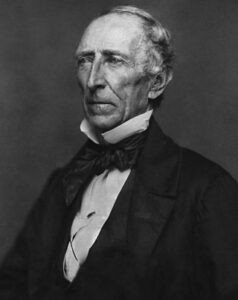
Even if we ultimately reject this premise, however, and rank Harrison alongside all other presidents, C-SPAN’s placement of this essentially harmless president is odd at best. Take, for example, Tyler’s ranking just above Harrison: a president best known for Congressional conflicts so intense he was summarily read out of his own party and rejected by the opposition. After aliening Harrison’s entire cabinet as a result, he stacked his new cabinet with slavery advocates, including the ideological father of secession, John C. Calhoun, and worked tirelessly to expand it to new territories. Two places above Tyler C-SPAN places 29th President Warren G. Harding, the ineffective creature of machine politics and media sensationalism now remembered for his affairs and the serial corruption within his own cabinet. One place above Harding is 31st President Herbert Hoover, not-so-fondly recalled by my great-grandmother as “That Bastard” for his sheer ineptitude at addressing the Great Depression.
Ranking presidents is far more of an art than a science, as historians’ views of the relative significance and importance of historical actions are constantly reassessed and reevaluated. It’s an easy task to find a stain on the records of even those universally regarded as great, just as one can usually find at least one beneficial thing a terrible president did. It’s all complicated further if one blurs the lines between their terms of presidency and their lives both before and after. Nevertheless, though, it’s not terribly difficult to assess the overall impact of the best and worst presidents on the nation. A sympathetic historian may have something kind to say about Tyler, Harding, and Hoover, but each left office likely having done more harm than good to the state of politics and governance in the United States.
In this sense, ranking the presidents should not be done on a scale of 1 to 10, least great to greatest. Ranking in this way relegates those like Harrison, without much of a record at all, to the bottom rungs simply by default. It is perhaps more logical to rank instead on a scale of -10 to +10, from most harm to most benefit. Tyler, Harding, and Hoover would join the infamous likes of Pierce, Buchanan, and Andrew Johnson well below this scale’s 0 midpoint– itself a neither positive nor negative ranking which would likely be occupied only by one president. Such a ranking system would more easily separate three categories of presidents: the good, the bad, and the mediocre.
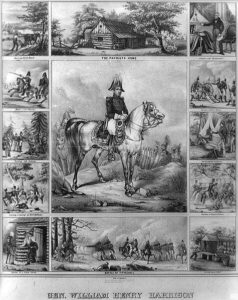
That is, of course, William Henry Harrison: the man who accomplished or bungled nothing at all, for he simply never had a chance to. Harrison’s greatest presidential sin was perhaps to die at all and hand the reins of power to Tyler– but as this was an age before presidential candidates selected their own running mate, blame cannot be ascribed to him. Though Harrison is by no means a beacon of morality by today’s standards, most famous prior to his presidency as the scion of a southern slaveholding family who made his name waging war against the native peoples of the old Northwest, we assume most rankings would only consider actions throughout the years of presidency. If campaigns are considered, Harrison may fall slightly for his overall dishonesty on the campaign trail, where he obscured his aristocratic Tidewater ancestry and portrayed himself as a hard-drinking common man of the frontier to great success, but that is a paltry fault compared to the corruption and incompetence of the bottom-of-the-barrel presidents. (Harrison’s legendarily catchy campaign, at least, has given us the only 19th century campaign song covered by a mainstream modern band.)
I am no great fan of Harrison personally: as I alluded to at the beginning, I don’t believe he would have been among the presidential greats even had he lived and served out his entire term. But it’s a mistake to confuse mediocrity with abject failure: and among the many forgettable mediocrities who have taken residence in the White House, Harrison, for once, stands out among the crowd.
